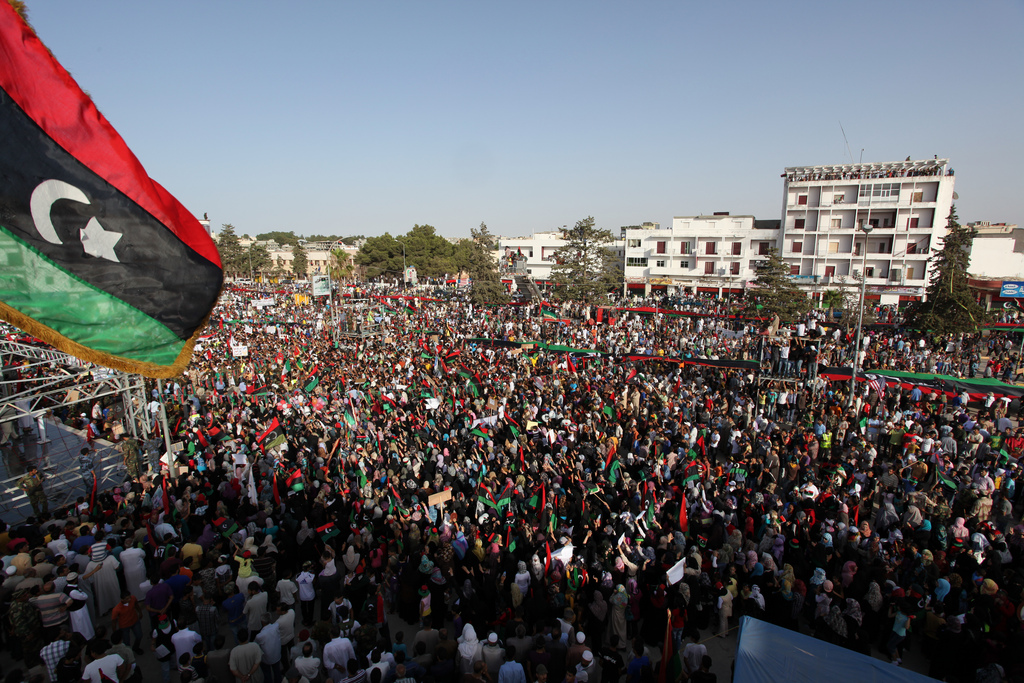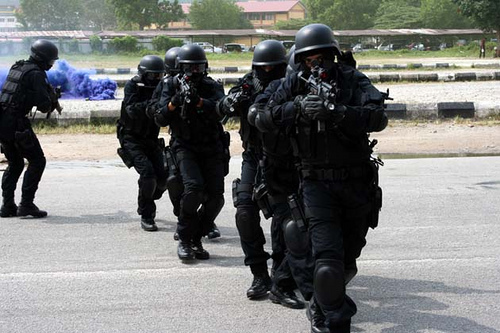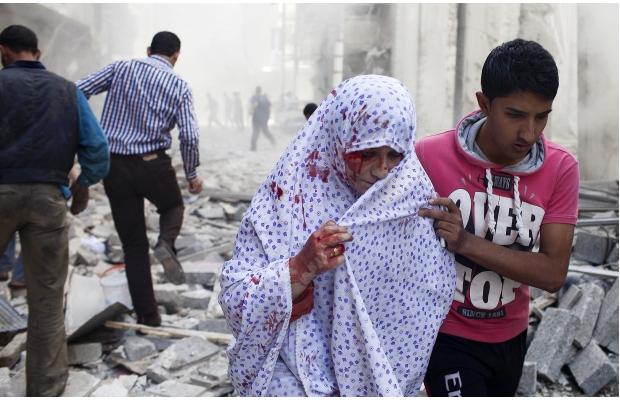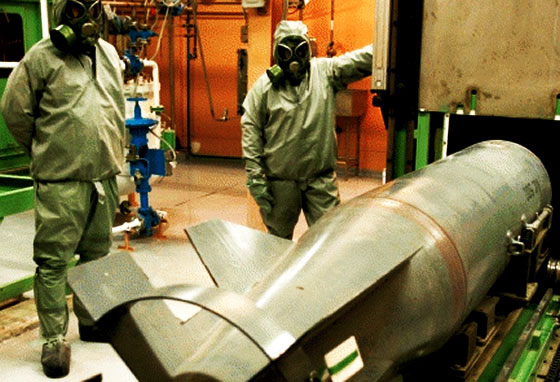Libya has experienced an ongoing political crisis since the Arab revolt and protests of 2011. The aftermath of the protests has led to a civil war, foreign military intervention backed by NATO, the ousting of the former President Muammar Gaddafi. The problems occurring in Libya can be traced back to Gaddafi’s downfall, as Libyan society fell along with it. After the eventual end of the civil war in October 2011, Libya was left with more than 2,000 militiasspread throughout the country, inciting a power vacuum for future violence and widespread instability. Within this vacuum, Khalifia Haftar, leader of the opposition, took control of the militias and seized power to form the Libyan National Army (LNA).
Libya is currently divided between the East and the West. The East is led by Haftar’s anti-government force, the Libyan National Army (LNA), while the West led by Prime Minister Fayez al-Serraj, backed by the UN Government of National Accord (GNA) in the capital of Tripoli. The power vacuum in Libya allowed for ISIS to foster and grow in the Eastern cities of Benghazi and Derna. As a response to the formation of ISIS in Libya, Haftar launched Operation Dignity against the terrorist group. Due primarily to the mass interests in Libya’s oil, France and other Western countries joined Haftar in the fight against terrorism. Supported by Western countries, including the United States, Haftar declared Libya’s victory over ISIS in mid-2017. Yet, the ongoing civil war did not end.
With help from NATO, Haftar was able to train and increase investments for his new and improved military. In securing the military, Haftar also attempted to secure the oil production, increasing incentives for Western countries to get involved. The LNA was successful in gaining control of Libya’s coastal cities including; Benghazi, Derna, and Sirte. The LNA is now attempting to gain control of GNA-occupied Tripoli. However, Tripoli is more organized and has fostered grievances against the LNA, making Haftar’s long-term obtainment of the capital city difficult Cite this please. The militias operating in Tripoli fear Haftar will becomea Gadaffi replica, believing he will be a reproduction of the problems faced in the Gaddafi era. The militias occupying Tripoli want to prevent the resurgence of Gaddafi’s political theories outlined in “Green Book,” ultimately resulted in a decline in constitutionalism, civil society, and overall political participation. The style of governing outlined in Green Book created a hierarchical pyramid,where Gaddafi’s family and close allies had absolute and unchecked power. The punishment for those who went against the theories outlined in the Green Book were extreme, including deathto anyone who spread theories trying to change the constitution. US President Ronald Reagan described Gaddafi as the “mad dog of the Middle East.”The GNA has made it clear that they will not stand for the resurgence of a Libyan dictator. Their overall political objective is unclear.
Haftar and the LNA are possibly trying to nurse Libya back to political health. Haftar voiced many concerns that Libya is not ready for rule of democracy. He understands democracy as genuine political reform, rather than as a starting point. With his violent military operations on the rise, Haftar made it evermore recognized that he himself is not a strong follower of diplomacy. An analyst on the Libya crisis described Haftar’s view on diplomacy as “ just space where losers are asked to accept his ascendency.” With diplomacy pushed to the side, the LNA has the mindset that violence is the first and foremost step in any operation.
For the past two years, the UN has been trying to mediate negotiations between the divided country. The UN strived to help the country run an election and restore an element of unity. In February, with help from the UN, Haftar and Libyan PM al-Serraj met and agreed on prioritizing stability in Libyan society. In addition, UN Secretary-General Antonio Guterres, was recently in Tripoli to discuss a peace summit. However, the UN’s pathway to Libyan unity coincided with Haftar making his military move to gain Tripoli. At a recent G7 summit, foreign ministers called upon Haftar to stop the violent offensive force, expressing concern that it would dive Libya further into chaos. Jean-Yves Le Drain, the French foreign minister, deemed: “There is an international principle in Libya. There will be no military victory. The solution can only be a political action.” The Russian and Egyptian foreign ministers similarly concluded there needed to be a political solution in Libya. The Government of Canada has followed suit, as they declared in a statement, “stability and durable peace will only be achieved through a political solution”. It is evident the ongoing fighting between the East and the West has and will continue to, severely undermine the UN’s plan of action. Past efforts to bring unity and stability to Libyan society have failed, due to the violence and uproar that has become a common occurrence. The current Libyan crisis is unfolding similarly. The political actors are still lacking the vital control need to create sustainable change in society. It is more evident than ever that successful peace talks cannot take place when the state is in a civil war.
Featured Image: Libyan Protests erupt throughout the country. (2011) by ليبي صح, via Wikimedia Commons.
Disclaimer: Any views or opinions expressed in articles are solely those of the authors and do not necessarily represent the views of the NATO Association of Canada.




